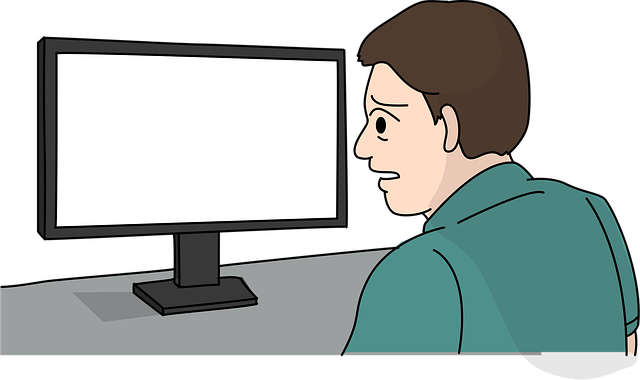Employment laws protect fair and safe working conditions, covering contracts, disputes, rights, hiring/firing, and harassment. Non-compliance leads to legal repercussions for employers and benefits employees by ensuring their rights are respected. Common workplace disputes include wrongful termination, harassment, and wage issues, requiring prompt action, clear policies, and legal consultation from specialists like labor law attorneys or employee rights lawyers. In today's complex business environment, navigating employment laws is challenging; these professionals guide organizations through compliance, draft contracts, manage disputes, and offer strategic counsel to protect both employers and employees from legal risks. Proactive measures include creating robust employment policies, regularly reviewing them, and training staff to reduce the risk of costly legal issues like wrongful termination or wage disputes.
In today’s complex business landscape, ensuring compliance with employment laws and regulations is paramount. Employment law encompasses a wide range of rules protecting employee rights, from fair wages and safe working conditions to anti-discrimination policies. This article guides you through crucial aspects of navigating workplace disputes, understanding the role of a labor law attorney, creating robust employment policies, and maintaining labor law compliance. By exploring topics like common disputes, legal representation, policy best practices, and more, businesses can safeguard against potential issues, including wrongful termination and workplace harassment, while leveraging labor law services to foster a positive work environment.
- Understanding Employment Laws and Their Importance
- Common Workplace Disputes and How to Navigate Them
- The Role of a Labor Law Attorney in Ensuring Compliance
- Best Practices for Creating Robust Employment Policies
Understanding Employment Laws and Their Importance

Employment laws and regulations are integral to ensuring fair and safe working conditions for employees across various industries. These laws, often referred to as labor laws, cover a wide range of issues, including employment contracts, workplace disputes, employee rights, and policies governing hiring, firing, and harassment. Understanding these laws is crucial for both employers and employees alike, as they protect the rights and interests of all parties involved in the employer-employee relationship.
Employers who fail to comply with employment laws risk facing severe legal consequences, including hefty fines, lawsuits, and damage to their reputation. A labor law attorney or employee rights lawyer can help businesses navigate these complex regulations, ensuring they maintain compliance and avoid costly mistakes. On the other hand, employees can benefit from knowing their rights, especially in cases of wrongful termination, wage disputes, or workplace harassment, where a knowledgeable workforce can advocate for justice and fair treatment through employment policies and labor law services.
Common Workplace Disputes and How to Navigate Them

Workplace disputes are inevitable, and recognizing common issues early on can help prevent escalations. One of the most prevalent is wrongful termination, where employees believe they have been let go unjustly. This often involves claims against employers for discrimination, retaliation, or breach of contract, highlighting the importance of clear and fair employment contracts and employment policies.
Another significant concern is workplace harassment, which can take many forms—verbal, physical, or sexual—and significantly impact employee morale and productivity. Employees who face such situations should be encouraged to document incidents and consult a labor law attorney or employee rights lawyer specializing in labor law compliance. Additionally, wage disputes are common, where employees dispute their pay, overtime, or benefits, underscoring the need for transparent and accurate record-keeping practices. Prompt resolution of these issues ensures a healthier work environment and mitigates potential legal ramifications.
The Role of a Labor Law Attorney in Ensuring Compliance

In today’s complex business landscape, ensuring compliance with employment laws and regulations is a daunting task for any organization. This is where a labor law attorney plays a pivotal role in safeguarding employers and employees alike from potential legal pitfalls. These attorneys are experts in navigating the intricate web of employment laws, which vary across jurisdictions, and they provide invaluable guidance on a wide range of issues. From drafting comprehensive employment contracts that protect both parties to advising on best practices for managing workplace disputes, labor law attorneys act as a shield against costly legal battles and reputational damage.
For instance, an employee rights lawyer can assist in addressing issues related to wrongful termination, ensuring that employers adhere to the necessary procedures and legal standards. Moreover, they offer expertise in handling workplace harassment cases, crafting policies that foster a safe and inclusive environment, and mitigating risks associated with wage disputes. Their labor law services extend to regular reviews of employment policies, ensuring they remain up-to-date and compliant, and providing strategic advice on restructuring initiatives to minimize adverse impacts on employees.
Best Practices for Creating Robust Employment Policies

Creating robust employment policies is a proactive step to ensure your business complies with current employment laws and regulations, and it serves as a shield against potential workplace disputes. These policies should be comprehensive, clear, and up-to-date, reflecting the latest legal requirements and best practices. Engage a labor law attorney or employee rights lawyer to draft and review these documents, ensuring they are legally sound and tailored to your organization’s unique needs. Employment contracts, for instance, should clearly outline the rights and responsibilities of both parties, including terms related to non-disclosure agreements, intellectual property ownership, and performance expectations.
Regularly reviewing and updating employment policies is also vital to keep up with changing labor laws and address emerging issues like workplace harassment or wage disputes. A competent labor law compliance team or a dedicated HR department can help monitor these changes and ensure your company’s policies remain compliant. Additionally, providing training sessions for managers and employees on these policies fosters a culture of understanding and accountability, reducing the risk of misunderstandings that could lead to costly wrongful termination cases or other legal issues.
Navigating employment laws and regulations is essential for fostering a compliant and respectful workplace. By understanding the importance of these laws, recognizing common disputes, and implementing robust employment policies, businesses can protect themselves from legal pitfalls. A skilled labor law attorney serves as a valuable ally, offering specialized knowledge to ensure compliance and safeguard employee rights. Remember, proactive measures, such as clear employment contracts and effective communication, are key to preventing costly mistakes and maintaining a harmonious work environment. Turn to reputable labor law services for guidance in managing workplace disputes, including harassment claims, wrongful termination suits, and wage discrepancies, ensuring your business operates within the legal framework governing employment practices.
